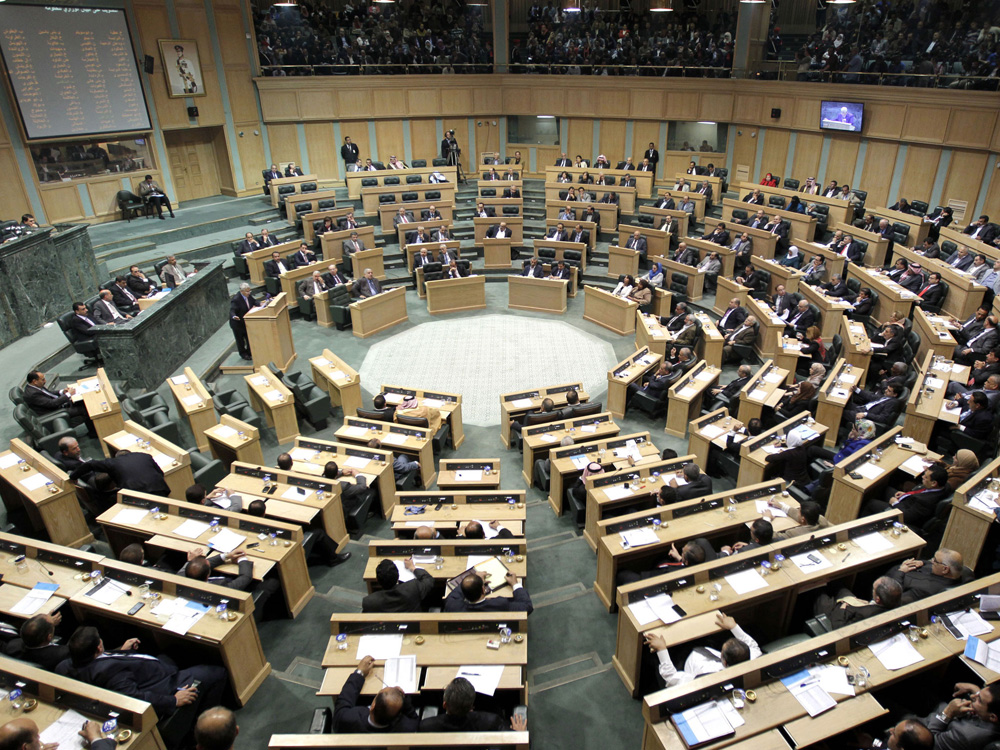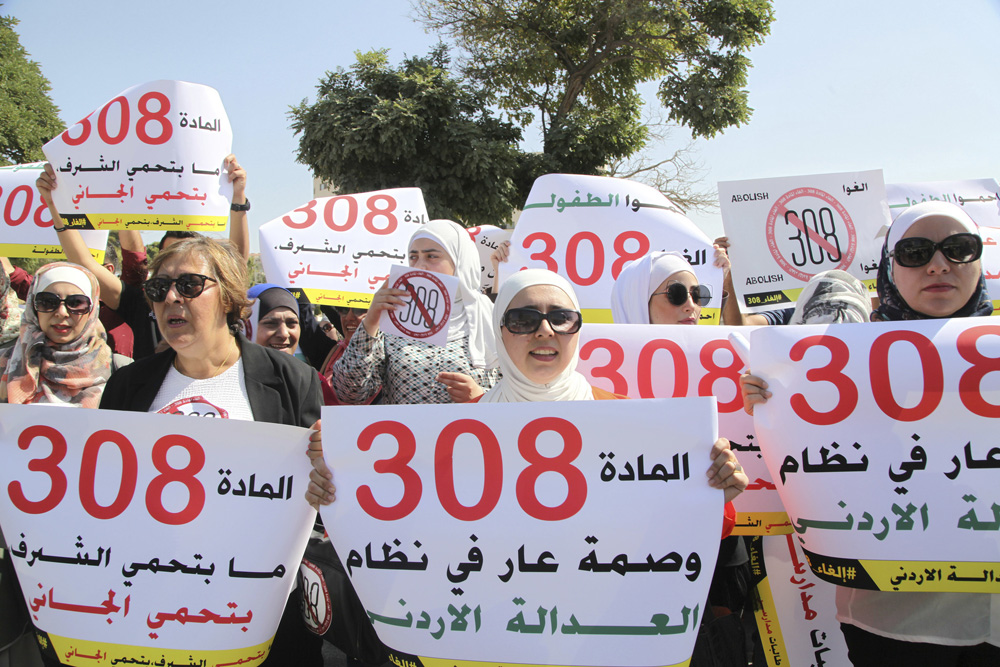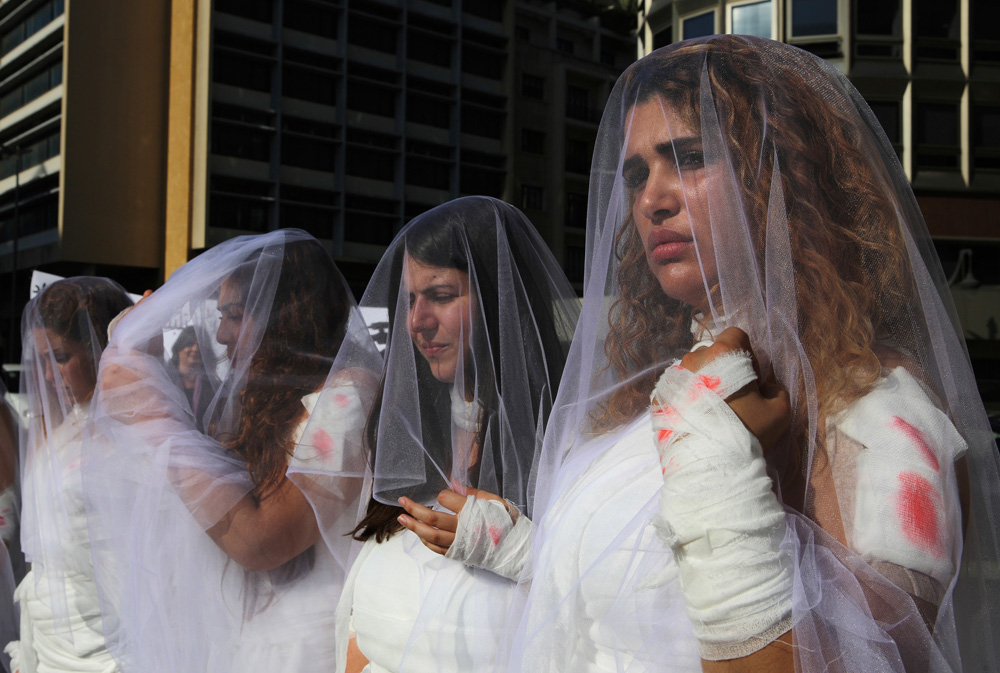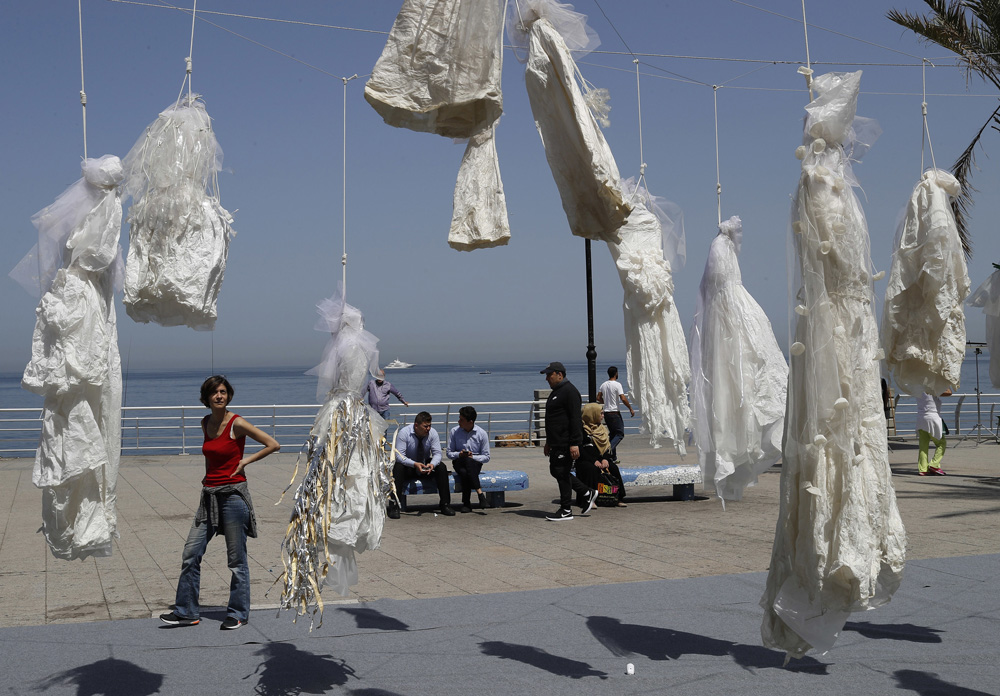
On 7 October 2016, a 36-year-old mother of three was beaten and strangled to death in her home by her ex-husband. The next day, a young woman was shot and killed by her 18-year-old brother while she was sleeping. A few days later, two sisters aged 20 and 34 were murdered by their brothers while at home. Their crimes: tarnishing their family's “honour”.
These murders took place during one of the deadliest weeks in Jordanian history for violence against women and was an abrupt wake-up call to the nation with one of the highest rates of “honour” killings in the region.
Coming To Terms with the Disturbing Trend of Killing Women for “Honour”
The idea of “honour” is widely ingrained in conservative societies and is used to control women’s freedoms.

“[Jordanians] understand 'honour' as a concept that only relates to women and that is mostly linked to their chastity and reputation," explained Hala Abu Ajam, a women’s rights activist to Stepfeed. "Male members of many families in the country believe that if their reputation is tarnished by a female, the only way to clear their name and get rid of the so called shame she has brought on to the family is to simply end her life."
On average, between 15 and 20 women and girls in Jordan are brutally murdered by male relatives each year on the suspicion of having tarnished their family's “honour”. However, as with most crimes against women, statistics are hardly reliable.
"Published statistics aren’t always accurate, as most 'honour' crime cases do not reach courts and aren’t officially recorded,” said Abu Ajam. “This is because in most areas of the country (mainly outside of the capital, Amman) the people who commit such crimes often bury the victim's body in a remote location before an investigation is even launched. If and when police are notified, most perpetrators often claim that the victim had committed suicide.”

Excuses for killing over “honour” range from women and girls having relationships out of wedlock, falling in love with someone their family doesn’t approve of or simply due to rumours of “dishonourable” behaviour.
"In most cases I've come across, the victim is murdered simply because there were rumours circulating about her,” said Abu Ajam. “It's never because she actually did anything that was considered immoral by her family. I've also seen cases where a woman is killed for being spotted in a car with a male colleague/friend or for coming back home late one night. In all cases, and no matter what the reasons [are], there is nothing that justifies these horrific crimes against humanity.”
Despite the unforgivable nature of these crimes, they have continued to rise with a startling 54 percent jump in 2016 according to women’s rights group The Sisterhood Is Global Association.
Change in Law Will Ensure Perpetrators Will No Longer Have Impunity
Although murder in Jordan is punishable by the death penalty, the law exists with a historic loophole for “honour” killers who are often given a lighter sentence. Article 340 of the Penal Code offers men a reduced sentence if they kill or attack their wife or female family member whilst she is committing adultery. This article is often used in court even if the circumstances are not relevant to the case.

Under article 99, a leniency request by the victim’s family can also lead to a lighter sentence for the perpetrator. Families often make this request when they have conspired in the killing themselves and allows time served to be cut in half.
The penalty for “honour” killings can be further reduced if a perpetrator commits a crime in a “state of great fury [or ‘fit of fury’] resulting from an unlawful and dangerous act on the part of the victim,” according to article 98 of the Penal Code. Even in the case of premeditated murder, this defence can reduce time served to a single year.
A landmark vote by the Jordanian parliament's lower house on July 30 will amend article 98 and no longer allow a “fit of fury” defence for honour killings.
“This article is unjust to women,” Minister of Justice Awad Mashagbeh told the Jordanian Times. “In some cases, the perpetrator kills his victim for random reasons then proceeds to accuse her of adultery or honour-related accusations”.
The decision has been celebrated by activists who see it as a positive step forward to protecting women and girls.
Rape Victims No Longer Have To Marry Attackers to Maintain “Honour”
The Jordanian parliament pushed forward with more reforms to protect women and girls by voting to scrap a controversial law that encouraged rapists to marry their victims in order to avoid jail time and to maintain the victims “honour”.

Although the current law states that rape is punishable by 7 years in prison or the death penalty if the girl is under 15, it also allows rapists to walk free if they marry their victims and the union lasts for over 3 years. Official figures show that 159 rapists married their victims between 2010 - 2013 and that 300 rapes were reported annually during this period.
Rapes are significantly underreported in Jordan as they are seen as bringing “dishonour” to a family. This means that women and girls who report being raped do not only face repercussions from their rapist but also from their relatives who could kill them to remove the “shame” they believe has been brought onto their family.
Article 308 was annulled on August 1, 2017, after tireless campaigning by women’s rights groups.
“I feel like we’re living in a historic moment,” feminist activist Suad Abu Dayyeh told The Independent. “All these years of campaigning have paid off and will send a positive message to the rest of the region.”
Hope for a Future Free From Violence for Women in the Arab World
Laws that allow rapists to marry their victims are common in the Arab world with Algeria, Iraq, Kuwait, Libya, the Palestinian territories and Syria all maintaining clauses similar to Article 308 in Jordan.
Once approved by the upper house of parliament, Jordan will join Tunisia, Morocco and Egypt in repealing the law and bring hope to a region with endemic levels of violence against women.

















